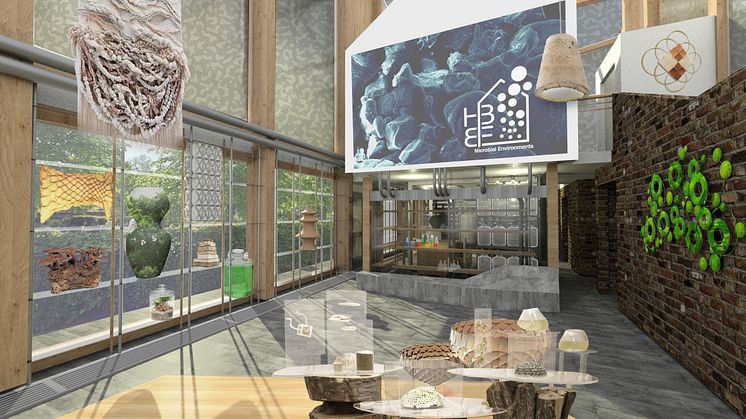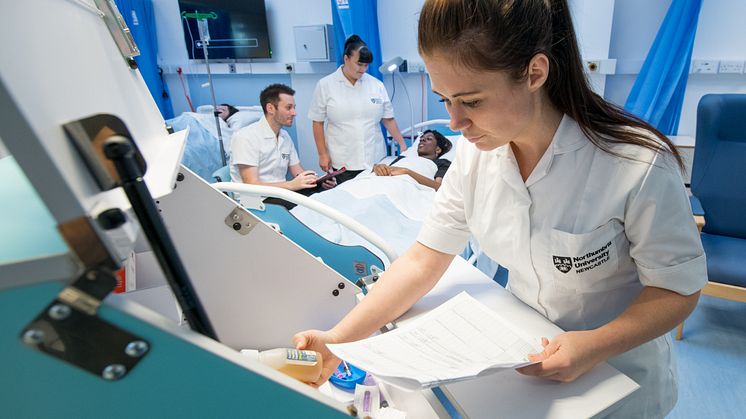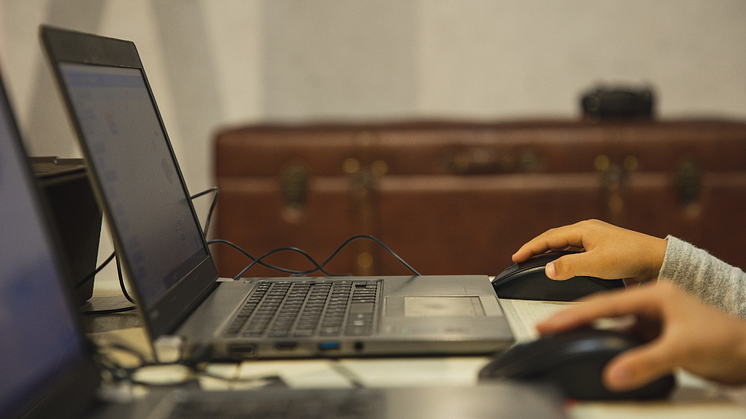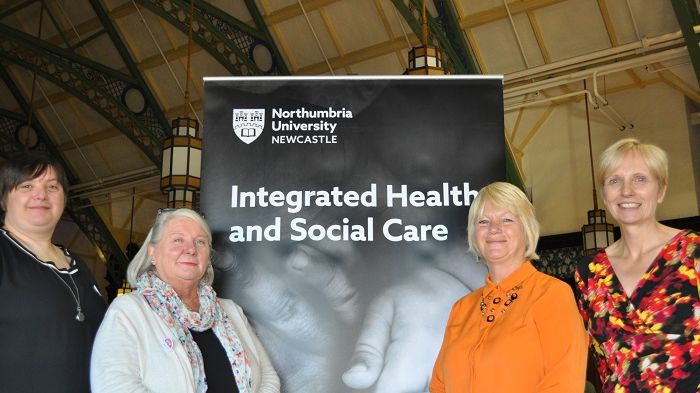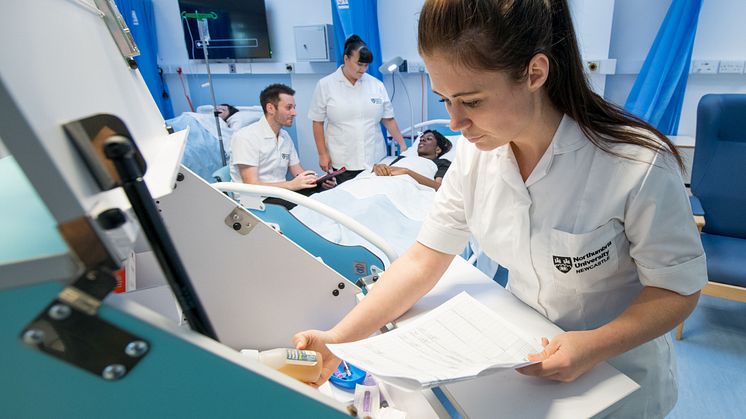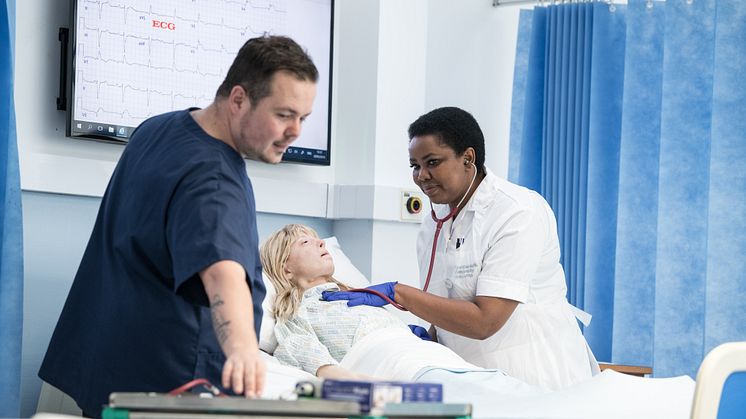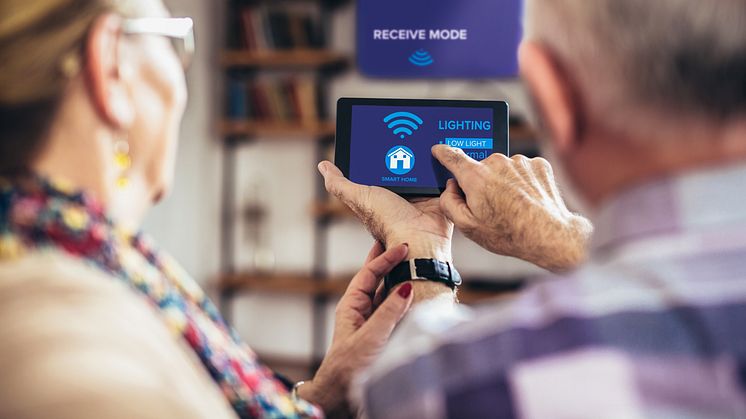
Press release -
Digital approach helps vulnerable people to live more independently
Researchers at Northumbria University are testing and developing a range of smart digital technologies to help some of the most vulnerable people in society live more independently.
Tools including virtual assistants, sensors, apps and off-the-shelf smart devices, such as Amazon Alexa and Google Home, are being tested as part of a ‘living lab’ and bringing together researchers from across faculties at the University.
The lab at Gateshead Innovation Village – an award-winning housing development created by Home Group, and designed by ID partnership with Project management by Elliott associates - is the base for a 12-month research project examining how various digital technologies can assist vulnerable people in different ways. These include home automation, prompts and reminders about their everyday activities, developing and maintaining their skills, and even monitoring their day-to-day behaviour.
The project will look to assist older people, those with mental health needs, and people with learning disabilities and autism spectrum disorder. It is drawing upon expertise from academics in health, design and computer science.
Ana-Maria Salai, Senior Research Assistant in the Department of Nursing, Midwifery and Health, has been living in the house at Gateshead Innovation Village for 10 months, and will be living there until August 2020, as she examines and develops a range of smart digital technologies.
She has helped to develop personalised and agile approaches to existing everyday technology. One solution that has been developed is IntraVox, which is a process that analyses data collected from the sensors and then sends a message in a familiar voice to control a virtual assistant. This audible sending of commands makes the things that go on in the home clearer and more understandable, which is particularly important for residents that are not used to “smart” technology.
“The voices on these devices such as Alexa and Google Home also sound quite synthetic,” she said. “Programming these devices so that they have a human voice makes them a lot more user-friendly. These can be the voices of a family member, friend, or even a person’s carer.”
“We have also identified the benefits of developing a person’s skills using digital technologies, for example, using a tablet to show a friend or family member making a cheese sandwich, giving clear instructions along the way. This has proven more valuable to vulnerable people who respond better to a familiar voice and face, rather than someone they don’t know on a generic tutorial video.”
Ana-Maria is currently looking at the most effective home sensors that can detect motion and if something seems out of the ordinary, an alert can be sent to a person’s family member or carer.
The project and its findings have been well-received by Home Group and now other local councils are showing interest in Northumbria’s innovative approach to support in the home.
Glenda Cook, Professor of Nursing at Northumbria University, who leads the project from a health care perspective, said: “Incredible social impact can be achieved through use of digital technologies that are becoming widely available to everyone and can support independence and improve quality of life.
“We hosted numerous workshops, bringing together health and social care organisations, city councils, people with learning disabilities, older people and family members who act as carers. We wanted the project to be very research-focussed, working closely with our partners to ensure maximum impact for the customer.”
Professor Lars Erik Holmquist, from Northumbria University’s School of Design, has vast experience in smart technologies and is leading the research from a technical side.
“The smart home does not actually exist yet, it is still very much a myth,” he said. “It is still something the world is aspiring too, but what we are doing here is very innovative. We have devised a way in which the devices can communicate with each other; for example, if it’s getting dark a sensor will pick this up and a voice on another device will say would you like the lights turned on? This opens the “black box” of the smart home and makes it much more user-friendly.
“We are taking things that exist and are relatively cheap to buy, but we are applying them in a way that is unique.”
Northumbria’s research in Integrated Health and Social Care looks at shaping interventions that have impacts on a health, educational, behavioural, economic and social basis, at local, national and international levels.
The University is constantly engaged in debates, acting as a voice for vulnerable members of the community and publishing high quality research that offers real solutions for some of the major issues we’re facing in these areas.
Its team of researchers are challenging the status quo and looking at what they can do to improve the life chances of people, particularly some of the most vulnerable people in our society.
Topics
Categories
Northumbria is a research-rich, business-focused, professional university with a global reputation for academic excellence. Find out more about us at www.northumbria.ac.uk --- Please contact our Media and Communications team at media.communications@northumbria.ac.uk with any media enquiries or interview requests ---







